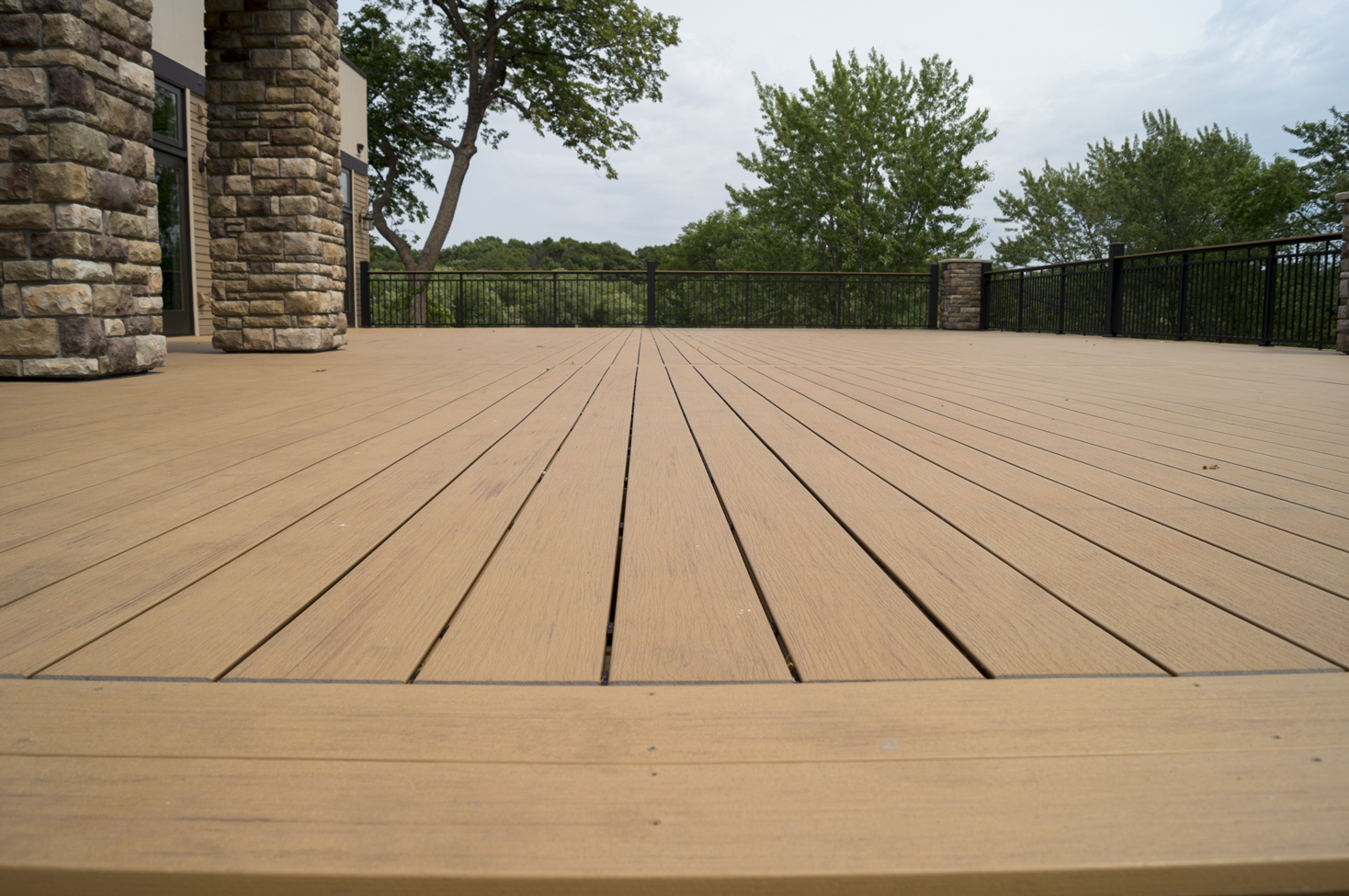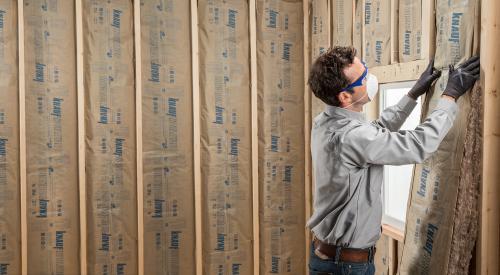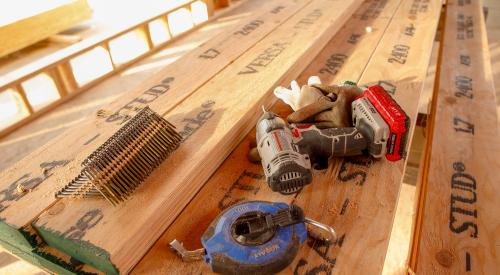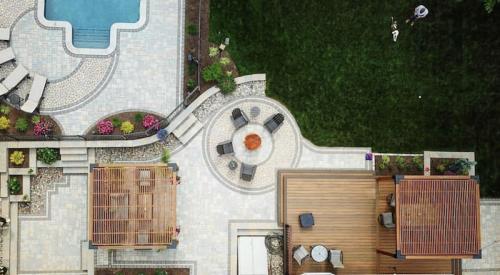A well-designed deck is still one of the most popular outdoor amenities among homeowners, and one of the hottest ways to install one is with a seamless, hidden-fastener look.
Traditionally, installers attached deck boards with face-nail screws: This was (and in some case, still is) the standard method of construction. The method is perfectly fine for a quality, but unless the installer is careful, the aesthetics can be uneven. The fasteners need to be spaced jut right, and they must driven at a consistent depth every time.
For a growing crop of demanding clients and homebuyers, an inconsistent look will not do.
“This is because, beyond the basic utilitarian concerns, most of my clients want their decks to make an architectural statement,” deck builder Tom O writes on the Fortress Deck blog. “If you are interested in a smooth and seamless deck, one of the best ways of achieving it is with hidden fasteners,” he adds.
Hidden fasteners for wood decking come in various forms, but the goal is still the same: to make sure the screws or nails are invisible (or at least difficult to see) with the naked eye. In some case, installers may face-nail with an 8-penny finish nail and use a nail set to sink the fastener. This method gets the job done.
READ MORE: HOW TO BUILD KNOCK-OUT DECKS, PATIOS THAT HOMEOWNERS WILL ACTUALLY USE
A better option using a face attachment involves a pre-drilling, sinking the screw, and filling the hole with a bung. This is often used for wood decking, but many composite decking manufacturers also offer pretty effective systems.
“Hidden fasteners are typically metal clips that attach to the base of the decking board or are inserted into the groove of a specially-designed grooved board and are then screwed into the decking joist,” Tom O says. “When grooved boards are used, this kind of construction creates an interlocking deck below the surface, while the surface itself remains smooth and seamless.”
No matter if you’re using pressure treated wood, tropical hardwoods, or composite lumber, many manufacturers and decking companies offer hidden fasteners for wood decking that do an excellent job of creating a modern, seamless deck that is free of visible nails.
Here are nine hidden fasteners for wood decking that we like to give you the picture-perfect decks your clients and buyers want.
Hidden Fasteners for Wood Decking:
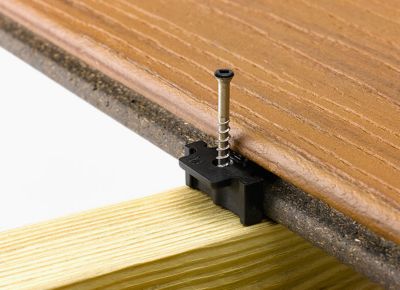
1. Trex
This self-gapping hardware is the main fastener component that attaches two boards together. It features a stainless steel deck screw already set in the fastener and easier installation. It’s available in versions for the company’s Elevations steel framing or for wood framing.
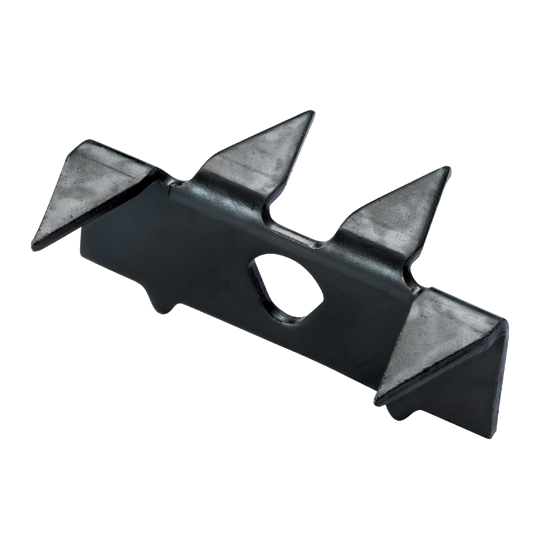
2. FastenMaster
The Tiger Claw TC-1 clip system is designed to hide fasteners in softwood decking boards such as pressure treated, cedar, or redwood decking. Made of hardened carbon steel for corrosion resistance, it uses a simple three-step installation process that results in a secure, fastener-free decking surface. It’s approved for use in ACQ and chemically treated lumber.
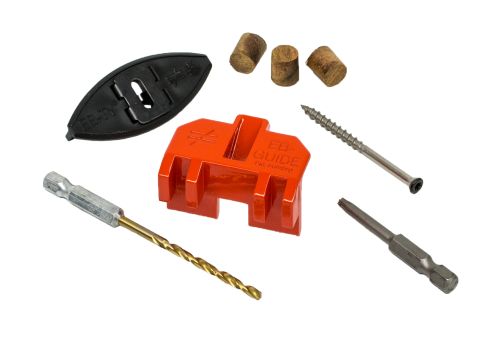
READ MORE: DECKORATORS SET TO RELEASE AFFORDABLE, ENTRY-LEVEL COMPOSITE DECKING
The brand’s EB-TY Premium Hidden Deck-Fastening System consists of a stainless steel plate, a guide and drill bit, and a black head-painted trim screw. The company says it created the system to hold boards in place securely yet maintain flexibility when seasonal contraction and expansion occur. It can be used with exotic hardwood, redwood, and cedar decking.
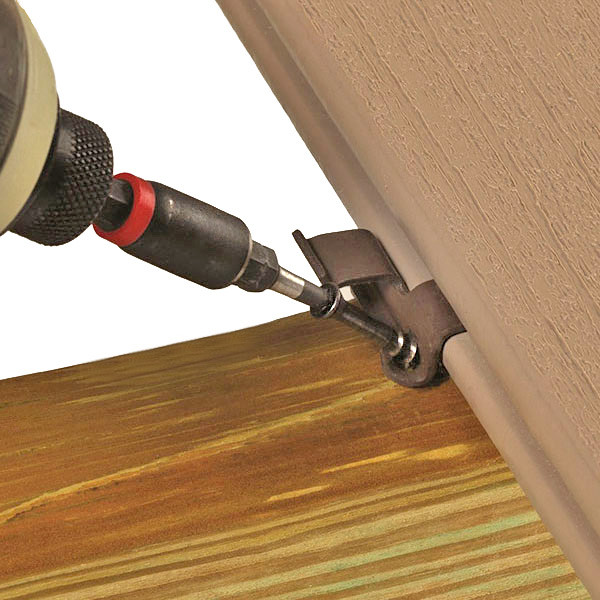
4. TimberTech
Designed exclusively for TimberTech grooved boards, ConceaLoc provides a fastener-free surface and can be installed pneumatically or using a traditional drill. Once installed, it stays hidden to preserve the deck’s clean, finished appearance, the company says.
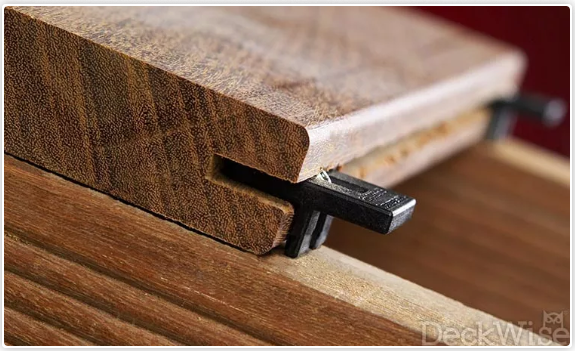
5. DeckWise
These hidden deck fasteners with stainless steel reinforcements are three times stronger than other unseen deck/patio fastener systems, the manufacturer says. The Ipe Clip is molded of a malleable plastic polymer resin coating that allows the natural expansion/contraction of wood decking. A rigid stainless steel insert firmly holds decking to joists.
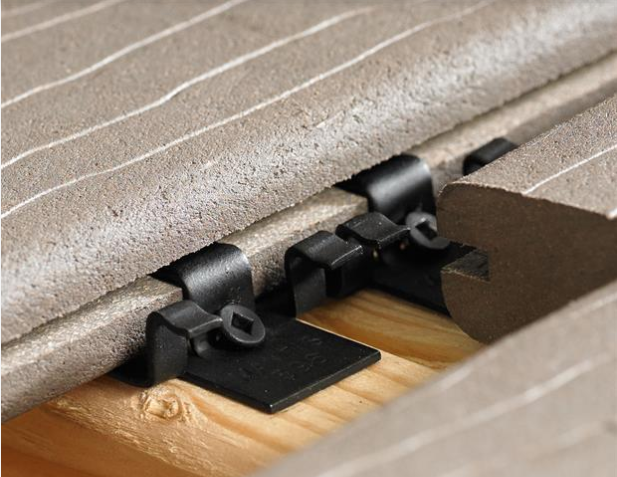
6. Senco
The Mantis Deck Clip System is designed to provide a hidden fastener solution for slotted decking made from PVC, composites, or wood. It consists of deck, starter, and finish clips to ensure an unblemished deck surface and can be used with ACQ and other treated lumber. Clips automatically space deck boards 3/16 inch for a consistent look, the manufacturer says.
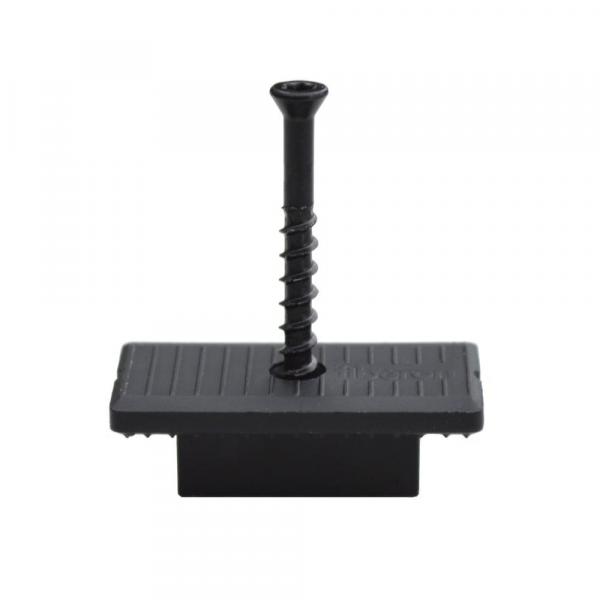
7. Fiberon
The Phantom Universal Hidden Fastener helps minimize lateral board movement and creates a seamless decking installation. Its black polypropylene fastener practically disappears between deck boards and a pre-inserted screw enables easy one-touch installation. It works with most grooved composite decking brands. A self-gapping design ensures consistent 3/16-inch spacing between every board.
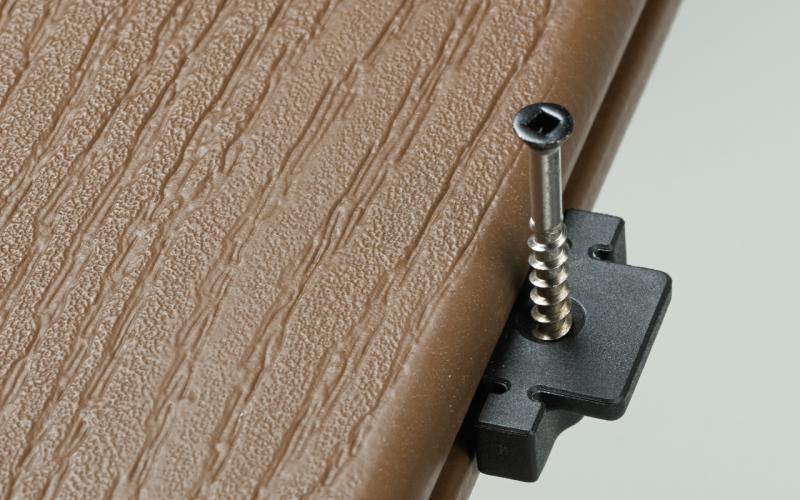
8. Deckorators
Stowaway discreetly secures deck boards to joists using the slotted edges of decking. Because the screw comes preloaded, the installation process faster and saves time and money, the company says. The design of the clips provides consistent ¼-inch spacing between deck boards, while the need for pre-drilling and countersinking are eliminated.
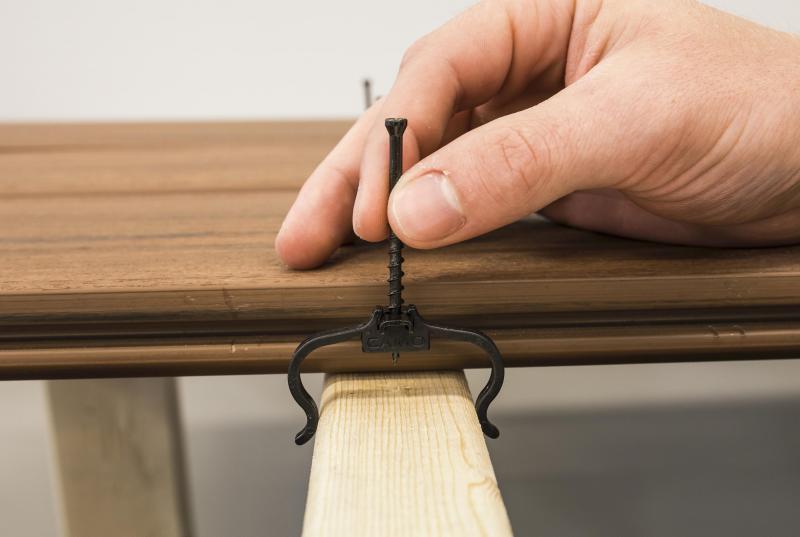
The Camo EdgeClip is engineered to reduce the time of installing any type of grooved decking, including wood, capstock or PVC. Designed for traditional 90-degree decking patterns, the clip attaches around the joist and slides into the groove. No pre-drilling of the screw is required. The next board is slid into place and the installer is ready to attach the clip and board.
